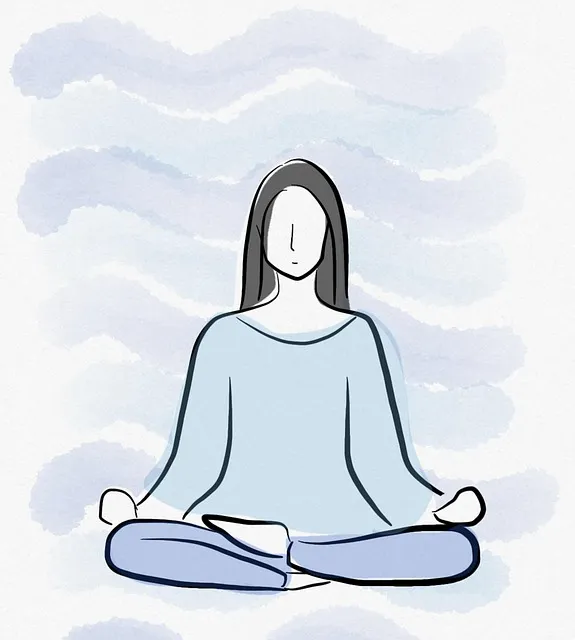The Boulder Kaiser Permanente mental health center prioritizes holistic self-care, integrating emotional, physical, and psychological well-being. They encourage introspection to identify personal needs, offering programs like Mental Wellness Coaching. Mindfulness, meditation, regular exercise, and nutritious eating are emphasized as key practices for stress reduction and emotional balance. The center promotes building resilient habits for long-term mental health, ensuring an inclusive environment for diverse community needs.
At Boulder Kaiser Permanente, we believe that prioritizing self-care is pivotal for nurturing mental wellbeing. This comprehensive guide explores effective strategies to enhance your self-care practices, drawing from the expertise of our mental health center. Discover how identifying personal needs, incorporating mindfulness, and adopting healthy habits can lead to profound improvements in your overall mental health. Join us as we delve into actionable steps designed to foster resilience and sustainable self-care.
- Understanding the Importance of Self-Care for Mental Wellbeing at Kaiser Permanente Boulder
- Identifying Personal Self-Care Needs and Priorities
- Incorporating Mindfulness and Meditation into Daily Routines
- The Role of Physical Activity and Nutrition in Enhancing Self-Care
- Building Resilient Self-Care Habits for Long-Term Mental Health
Understanding the Importance of Self-Care for Mental Wellbeing at Kaiser Permanente Boulder

At Kaiser Permanente Boulder, recognizing the profound impact of self-care on mental wellbeing is a cornerstone of their mission. The mental health center prioritizes fostering holistic well-being, understanding that emotional healing processes are deeply intertwined with physical and psychological aspects of life. In today’s fast-paced world, where stress and pressure can take a toll, self-care becomes an indispensable tool for maintaining mental resilience. Kaiser Permanente Boulder encourages individuals to view self-care not as a luxury but as a necessary practice to cultivate overall health.
This approach is further enhanced by the center’s commitment to cultural sensitivity in mental healthcare practice. Recognizing that every individual brings unique experiences and perspectives, Kaiser Permanente Boulder invests heavily in healthcare provider cultural competency training. This ensures that their team is equipped to offer empathetic and effective support, catering to diverse needs within their community. By integrating self-care practices alongside culturally sensitive care, the center strives to create an environment where emotional healing processes are accessible and affirming for all.
Identifying Personal Self-Care Needs and Priorities

Identifying your personal self-care needs is a crucial step in enhancing your overall well-being. It’s akin to navigating a labyrinth where every turn reveals a new aspect of yourself and what makes you thrive. At the Boulder Kaiser Permanente mental health center, we emphasize that this journey begins with introspection. Reflect on your daily life—the stresses, joys, and everything in between. What activities or practices bring you a sense of calm and contentment? Are there habits that drain your energy or trigger unhelpful emotional responses? Recognizing these patterns is key to setting personal self-care goals.
This process involves prioritizing your mental health and emotional regulation, which are essential components of overall mental wellness. Our Mental Wellness Coaching Programs Development focuses on teaching effective empathy building strategies and emotional regulation techniques. By understanding what matters most to you, you can tailor self-care practices that sustain your energy levels, manage stress, and promote a sense of balance in your life. Whether it’s dedicated time for hobbies, mindfulness exercises, or connecting with loved ones, ensuring these activities are woven into your routine fosters resilience and enhances your ability to navigate life’s challenges.
Incorporating Mindfulness and Meditation into Daily Routines

Incorporating mindfulness and meditation into your daily routine can significantly enhance your overall well-being, as recommended by experts at the Boulder Kaiser Permanente mental health center. These practices have been shown to reduce stress, improve focus, and foster a deeper sense of self-awareness—all crucial components for optimal mental health. By dedicating just a few minutes each day to mindfulness exercises, you can cultivate coping skills that effectively manage anxiety and promote emotional balance.
Mindfulness involves being present in the moment, observing your thoughts and feelings without judgment. Compassion cultivation practices, a subset of mindfulness techniques, encourage empathy and kindness towards yourself and others, which can help reduce symptoms of stress and depression. Incorporating these strategies into your regular routine may seem challenging at first, but with consistent practice, you’ll find them becoming integral parts of your self-care regimen, offering valuable tools for anxiety relief and improved mental resilience.
The Role of Physical Activity and Nutrition in Enhancing Self-Care

Engaging in regular physical activity is a powerful tool for enhancing self-care practices, as recommended by experts at the Boulder Kaiser Permanente mental health center. Exercise not only improves physical health but also boosts mood and reduces stress, anxiety, and depression. Activities like walking, yoga, or team sports can help individuals maintain a healthy work-life balance, fostering a sense of well-being that positively impacts every aspect of life.
Nutrition plays a crucial role in supporting mental health alongside physical activity. Eating a balanced diet rich in fruits, vegetables, whole grains, and lean proteins can significantly influence brain function and mood regulation. Incorporating foods with omega-3 fatty acids, such as salmon and walnuts, and vitamin D-rich foods like sunlight exposure or fortified dairy products, is essential for optimal mental health. The Boulder Kaiser Permanente mental health center encourages individuals to consider their diet as a crucial component of self-care, promoting overall resilience and emotional stability.
Building Resilient Self-Care Habits for Long-Term Mental Health

At the Boulder Kaiser Permanente mental health center, professionals emphasize the importance of building resilient self-care habits for long-term mental well-being. These practices extend beyond momentary relaxation; they are designed to cultivate emotional regulation and stress management skills that can prevent burnout and promote a sustainable lifestyle. Incorporating activities such as mindfulness meditation, regular exercise, and quality sleep into daily routines helps individuals maintain their mental fortitude over time.
By prioritizing self-care, individuals can better navigate life’s challenges and setbacks. The Boulder Kaiser Permanente center encourages patients to identify personal needs and incorporate them into their schedules, fostering a sense of balance and resilience. Through these proactive measures, one can achieve optimal emotional health, ensuring they are equipped to handle the demands of daily life while preserving their mental health for the long term.
At the Boulder Kaiser Permanente mental health center, understanding and prioritizing self-care is key to fostering long-term mental well-being. By identifying personal needs and incorporating practices like mindfulness, meditation, physical activity, and nutritious diets, individuals can build resilient self-care habits. These strategies, when integrated into daily routines, empower folks to navigate life’s challenges more effectively while enhancing their overall quality of life.






